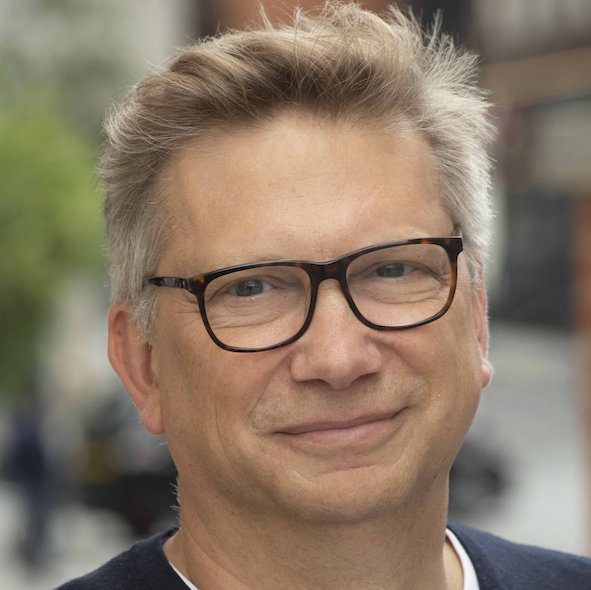Gaining Control in the Face of Overwhelm
The other week I had the opportunity to listen to my colleagues Rachel Morris and Helen Brooks as they hosted a thoughtful conversation at the CityLit Mental Wealth Festival 2025.
Theirs was a session focused on “Gaining Control in the Face of Overwhelm,” and I was struck that their approach is timelier and more relevant than ever, against the backdrop of a world where feelings of burnout and persistent overwhelm are common among working professionals.
A Widespread Challenge
Rachel began by pointing directly to the widespread experience of overwhelm. Her stories, drawn from weekly client coaching sessions, reminded me of how widespread these challenges have become - clients wrestling with anxiety, burnout, and even trauma linked to workplace expectations and culture. Helen, with her extensive background in Positive Psychology and business consulting, mapped these lived experiences onto broader trends, referencing how most professionals have to negotiate a fragile, “BANI” world—brittle, anxious, nonlinear and incomprehensible.
From my perspective, it is striking how these issues arise across our varied coaching engagements. The sense of being “always on,” compounded by economic pressures and the uncertainty of technological change, has made overwhelm more widespread and visible. What both Rachel and Helen model in their own coaching work - and what I see as core to Motion Learning’s philosophy - is a commitment to addressing these realities with empathy and actionable insights.
Understanding Burnout - A Shared Reality
Their conversation made clear that burnout is not just an individual problem, but a systemic one. Rachel’s LinkedIn posts about clients’ anxiety and disengagement resonated deeply - my own conversations with clients often echo these themes. Helen’s reference to the latest Gallup workplace research, finding high levels of disengagement and stress among European employees, felt familiar and underscored the urgency of our work as coaches.
What I appreciated most in their narrative was a balanced, practical view which doesn’t demand the eradication of stress entirely. Instead, both colleagues described the “stress-performance bell curve,” affirming that some stress is natural and even helpful, but that chronic overload will eventually tip even the most resilient professionals towards burnout or “rust out.” The lesson for all of us is to identify where we are on this curve and to take action before things become critical.
Signals, Triggers, and Early Intervention
Rachel and Helen then reflected on the signals and triggers that indicate overwhelm. Helen’s view – that our bodies often warn us before our conscious mind catches on – felt especially relevant. In our experience, colleagues and clients alike benefit from tuning into physical, behavioural, and psychological signs: mouth ulcers, headaches, sleep changes and social withdrawal are all significant markers, easily overlooked in our busy routines.
The discussion went deeper into psychology, acknowledging our innate “negativity bias” and how it can drive catastrophising when stress runs high. The practical advice to explicitly name fears – asking ourselves “What am I really afraid of?” – is a deceptively simple yet powerful intervention, one that we have seen shift mindsets and enable clearer problem-solving.
From Overwhelm to Control - Practical Coaching Wisdom
One of the session’s central themes was regaining a sense of control. Here, Rachel and Helen’s own coaching expertise shone, giving attendees concrete tools for managing both internal and external challenges. Rachel’s two-minute exercise – writing down every concern, then distinguishing between those we can control and those we cannot – is a staple of our Motion Learning toolbox. We always see client’s recognising the value of “chunking” big problems into manageable, actionable tasks, helping them move from paralysis to purposeful action.
The session reminded us that while not every situation can be changed, everyone can control their response and attitude. This lesson – which Helen highlighted is one drawn from Viktor Frankl’s enduring wisdom, who talked about the “last of the human freedoms being our choice of attitude” – is not only central to our work, but a principle we could all benefit from adopting personally and professionally.
Building Everyday Resilience
As Rachel and Helen moved towards closing the session, their focus shifted to resilience and their belief that resilience is built through small, regular acts of self-care: identifying personal needs and meeting them, without judgement or complexity.
Rachel’s “right here, right now” approach to moving beyond a state of “freeze” – pausing to ask what is immediately needed, whether a break, a warm drink, or reaching out for support – felt both simple and meaningful.
Key Takeaways - Reflections on the Session
As a participant, observer, and colleague, I drew out the following key messages from Rachel and Helen’s workshop:
Recognise your signals of overwhelm – and pay attention to those in others, too.
Name and address your fears directly
Use short bursts of focus – two minutes or so – to capture and sort through concerns, separating actionable from uncontrollable matters
Start with one tiny, manageable step and build up from there
Meet your own immediate needs, without self-judgement
Practise kindness: take everything one step at a time and remember that progress, however small, matters
Working Together - Learning and Leading Collectively
Ultimately, what comes through most strongly in Rachel and Helen’s approach is a deep-seated belief in collaboration, not just in the delivery of coaching but in all aspects of our work. Their dialogue was a live demonstration of Motion Learning’s ethos: expertise, warmth, and mutual support applied to meaningful challenges.
As their colleague, I am reminded that our strength lies in working together, pooling insights, and supporting each other and our clients through ever more complex times. The issues of overload and resilience are not going away—but in the work we do, and in conversations like this one, we can model and cultivate the practical, human skills needed for sustainable wellbeing across teams and organisations.






